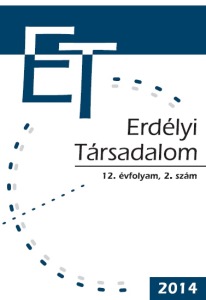Erőszakkontroll és intimitás. Kritikai adalékok Norbert Elias civilizációelméletéhez
VIOLENCE-CONTROL AND INTIMACY. CRITICAL REMARKS ON NORBERT ELIAS’ CIVILISATION THEORY
Author(s): Miklós HadasSubject(s): Social Sciences
Published by: Presa Universitara Clujeana
Keywords: Civilising Process, Violence Control, Homicides, Intimate Sphere, Gender Order, Pacification, Psychologisation, Female Agent
Summary/Abstract: How did the significance of interpersonal violence change in the Western world over the past centuries? How can we explain these changes? – these are the overriding questions of this study. I rely, first of all, on Norbert Elias’ civilisation theory and his figurational paradigm. In the last few decades, historians of crime have almost entirely confirmed the relevance of the Eliasian violence-control thesis. However, while Elias convincingly explores several key elements of the civilisingprocess, he does not ascribe due importance to the gender order in the intimate sphere. On the basis of the sentiments approach-literature I intend to prove that, from the 17th century onwards, the centre of family-life shifts from paternal authority to maternal care, mutual sentiments, and psychological harmonization, and the ethos of romantic love becomes the foundation of marriage. Consequently, while the power of the female agent increases, the legitimacy of masculine violence monopoly decreases. This process implies that man had to control his violent impulses also in the intimate sphere, and to incorporate dispositional elements that were associated with women in previous millennia. Thus, the growing psychologisation and pacification of social life is not independent of the radical transformation of the gender order in the intimate sphere.
Journal: Erdélyi Társadalom
- Issue Year: 12/2014
- Issue No: 02
- Page Range: 97-122
- Page Count: 26
- Language: Hungarian

